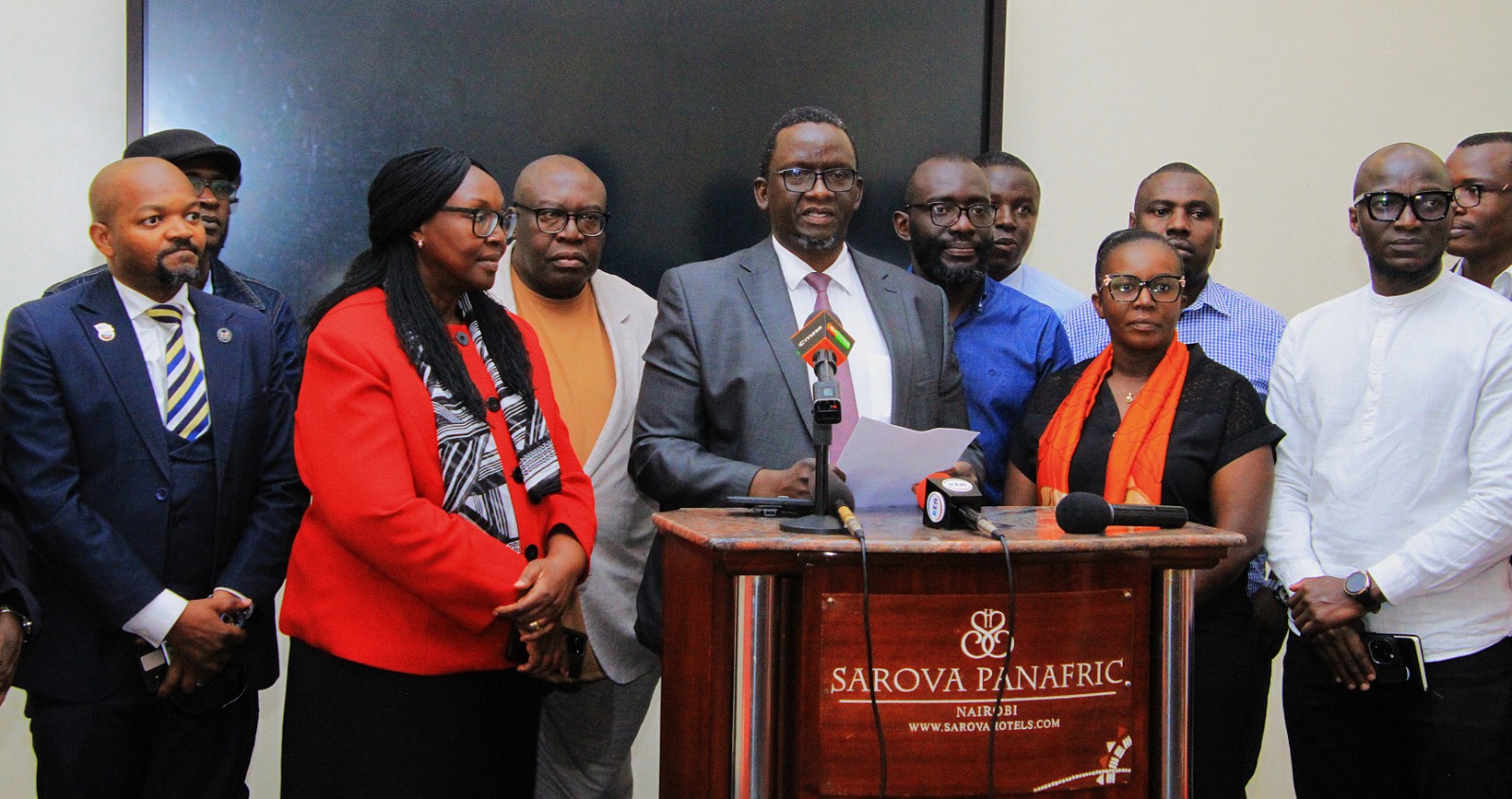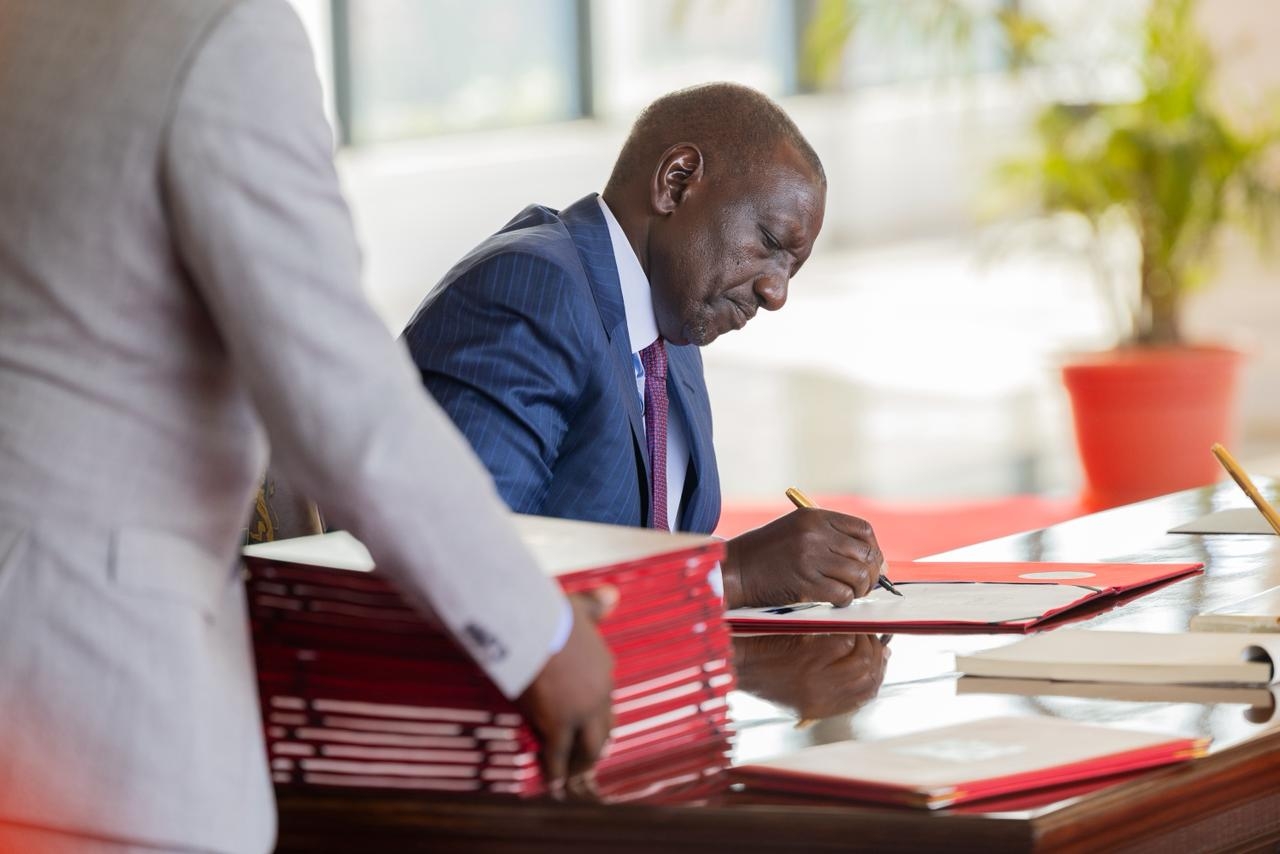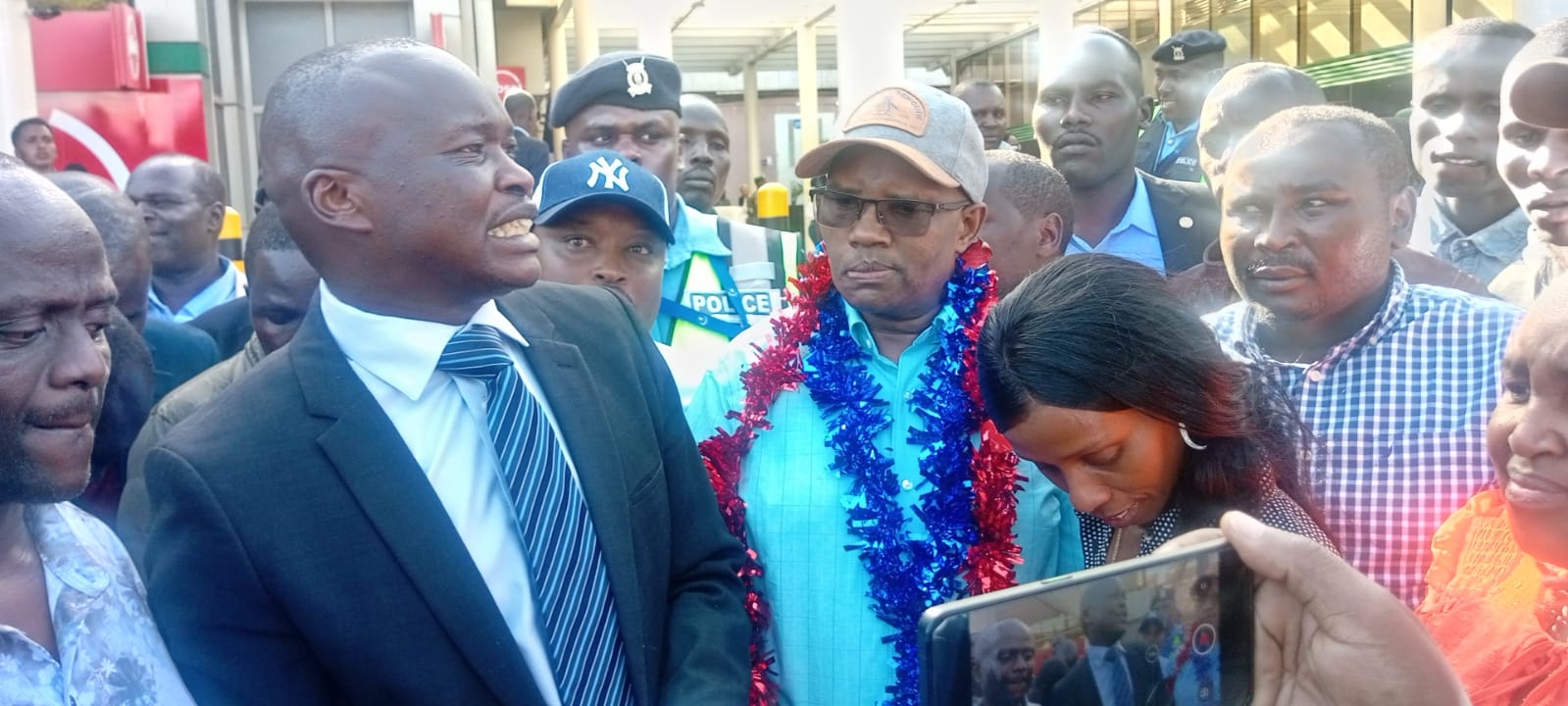@Alicewangechi
Soon after Kiharu MP Ndindi Nyoro was elected for his first term in 2017, he took a trip to South Africa that would change the lives of thousands of learners in his constituency.
Nyoro was taking a stroll in Cape Town when he saw a beautiful and well maintained learning institution that intrigued him.
Getting closer, he realised it was a public institution and took photos with his mobile phone. This was partly because he could not believe that a public school could look that good and also because he wanted to see whether the same could be replicated back home.
When he came back, the MP held a meeting with the constituency’s NG-CDF workers and shared the story.
They brainstormed on whether it could be possible to implement it locally and how that would be done.
They consulted architects and other experts and resolved to stop implementing construction projects through the normal tendering process.
Instead, they decided to use the labour-based model that would reduce the costs by up to 40 per cent.
But first, the NG-CDF needed to train residents the technical skills required to take up the jobs that would be provided by the new system of projects implementation.
“We took a batch of youths for training in tiles installation and professional painting to ensure their workmanship was of high quality,” the MP said.
Construction materials are also sourced from local outlets, ensuring that local families benefit every time there is an on-going project in an area.
Within his first term, Nyoro was able to renovate and tile all 112 public primary schools and by 2022, he was already considering laying cabros in their compounds.
The objective, he said, was to transform public schools into academies and provide a conducive learning environment for learners.
Already, 30 primary schools have had their compounds installed with paving blocks and landscaped, sparking excitement among learners.
The upgrade, Nyoro said, will provide a firm foundation for pupils and boost their confidence, ensuring they have a polished demeanour by the time they join secondary school.
“We started with 10 schools and have taken up 20 more during the August holidays. In December, more schools will benefit.”
Early last year, Nyoro also launched the Masomo Bora programme that subsidised fees for learners in day secondary schools who now pay only Sh1,000 per term.
Covering about 15,000 learners in 62 schools, the programme’s objective is to ensure students continue with their studies without disruptions.
While he schooled at Kiambugi Secondary School, the MP said he faced hardships that saw him undertake jobs such as repairing shoes for fellow students to help keep himself in school.
Still, his mother would visit the school regularly to plead with the management not to send him home over fee arrears.
“By the time I was completing my secondary education, I had a huge debt. This is what I want to save both learners and parents from. No parent likes to plead with teachers for their children to study,” he said.
Students enjoy a free feeding programme where githeri is on the menu for three days and then rice for the other three days, including Saturdays.
Every last Friday of the month, the students enjoy a meal of chapatti.
Nyoro said the NG-CDF contributes Sh40 million annually to the programme while parents and partners contribute the rest.
“We have a partner who donates sugar and porridge flour worth about Sh15 million annually. Another partner donates wheat flour for chapatis.”
Under the programme, Sh20 million is set aside to buy revision books to ensure the impact is both qualitative and quantitative.
The Star did a spot check at Kambirwa Primary School where there was a flurry of activities as workers rushed to finish laying cabros.
Susan Wanja, a casual labourer, said the project has given her a source of income, enabling her to provide for her three children.
She said the school was so muddy that uniforms would wear out fast due to vigorous washing.
“My children go to this school so I am benefitting in two ways. Previously, children would have to wear gumboots to school but that is over now.”
Head teacher Kenneth Mwangi said motorists found it difficult to access the school from its gate and were forced to leave their vehicles outside.
“This project has given this school a major uplift. It does not look like the same institution,” Mwangi said.
At Kirogo Primary School, headteacher Gabriel Gathika said when he was transferred to the school in 2018, he found classrooms that had leaking roofs, gaping holes in walls and worn out floors.
Children would spend about 30 minutes daily sweeping the dusty compound.
Since then, the school has been connected to piped water and undergone a major renovation that has renewed its face.
“The hygiene has gone up considerably. We no longer get colds when its dusty or muddy when it rains. All our 16 classrooms have been renovated and compound installed with cabros.”
Joyce Njoki, a youth working as a casual at Kiumu Primary School, said she had to temporarily close down her boutique at Kahuro shopping centre to work in the project.
Taking home Sh500 every day, Njoki said the money will give her a major financial boost as she single-handedly brings up her three children.
At Mugoiri Mixed Secondary School, Teresiah Wangari, the chairperson of the Parents Association, said Masomo Bora programme has had a major impact on students and parents, many of whom struggled to raise the Sh3,500 charged previously.
“Parents really struggled, especially those with multiple students. Students went in and out of school as the cost of living soared. However, they have now been maintained in classrooms and are able to focus.”
Wangari said some students are now preferring to leave boarding schools for day schools following the upgrade.
“Students from constrained backgrounds are choosing day schools because they are easily affordable. We’ve also seen families hosting their relatives’ children so they can join local day schools,” she said.
The programmes has seen tens of MPs stream into the constituency to benchmark, with areas such as Mukurwe-ini, Mathira and Kipipiri implementing them.
















